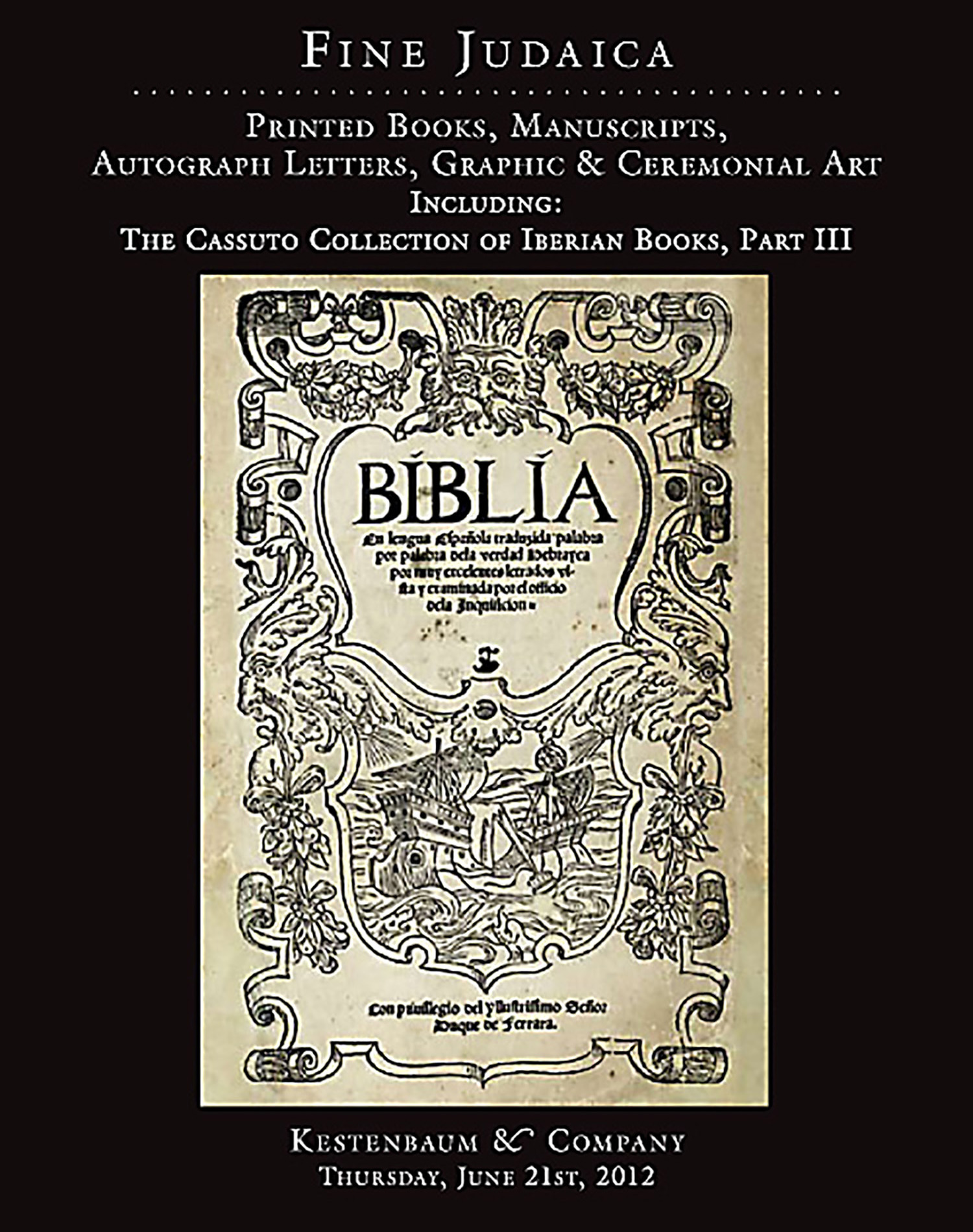Bouche, Charles-François. De la Restitution du Comté Venassin, des Ville et état d’Avignon.

AUCTION 55 |
Thursday, June 21st,
2012 at 1:00
Fine Judaica: Printed Books, Manuscripts Autograph Letters, Graphic & Ceremonial Art
Lot 110
(FRENCH JUDAICA).
Bouche, Charles-François. De la Restitution du Comté Venassin, des Ville et état d’Avignon.
Paris: Baudouin 1789
Est: $1,000 - $1,500
PRICE REALIZED $1,600
French Jewry at the outbreak of the Revolution in 1789 consisted of two parts: the “German nation” in Alsace-Lorraine and the “Portuguese nation” in Bordeaux and Bayonne. A third population center, concentrated in Avignon and the nearby towns of Carpentras, Cavaillon, and L’Isle, was both “more French” and “less French” than the other two: more French on account of these communities’ “indigenous” Provençal roots and traditions and less French because their members were not subjects (let alone citizens) of France--they were “the Pope’s Jews.” The Comtat Venaissin, including three of the “four holy congregations, “ had been a papal possession since 1274, and Avignon, administered as a city state separately from the adjacent Comtat (county), had been purchased by the Vatican in 1348. Papal sovereignty over Avignon and the Comtat, therefore, remained intact when the French Revolution began in the summer of 1789, upon the formation of the National Constituent Assembly.
Charles-François Bouche, lawyer and member of the left-wing or Jacobin faction of the Assembly, where he represented Aix-en-Provence, just south of the Comtat, lost no time raising the question of the papal territories. In this “motion printed by order of the Assembly as decreed on 21 November 1789, “he argues forcefully and in detail for what he calls the “restitution” of these enclaves – their return to France. Sections of this policy paper are devoted to: a review of the history of the “alienation” of these territories; documenting a history of French attempts to recover them; and the question of whether financial compensation is due to the Pope (no; centuries of unjust exactions by the Inquisition is more than compensation enough). As he makes clear in his preface, however, a debate on the future of the territories means deciding two questions, not one, for restitution means the conferring of French citizenship on the Pope’s former subjects, and the number of Jews among them being what it is, that makes the whole Jewish question uniquely pressing. Bouche, in his preface, expresses his belief that his fellow Assembly members will decide the matter with ease, “just be listening to the voice of religion and humanity, illuminated by the light of politics and reason.” His final chapters, devoted to the future condition of the Jews both in and around Avignon and throughout France, are of outstanding interest. Chapter X presents Bouche’s distinctive Enlightenment-flavored views on the Jews, plus a selection of episodes from the history of French-Jewish relations, including the offer of 60 million francs to Louis XIV for the right to settle in and develop the defunct port of Aigues-Mortes and the offer of 80 million francs to Louis XV for the right to build an open city, to which Jews might immigrate, near Bordeaux. Finally, chapter XI comprises Bouche’s proposed ten-point charter of civil rights for Jews--point 3, for example: “they will be taxed in as just and proportionate a manner as the French are.”
